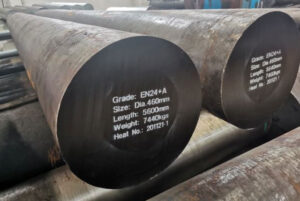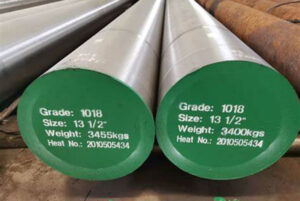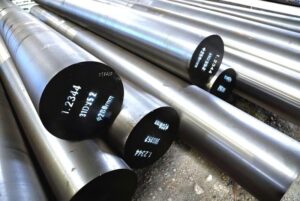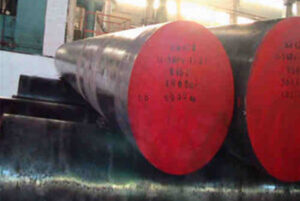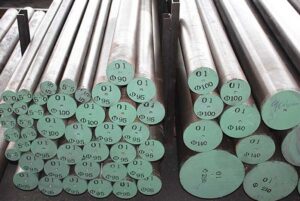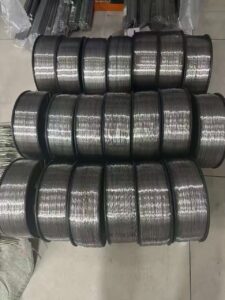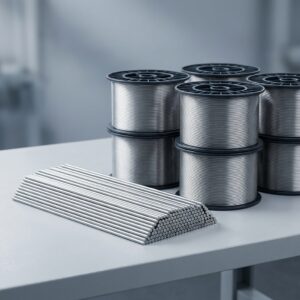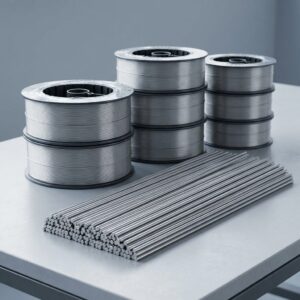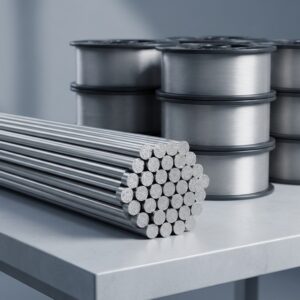In the realm of metals, some alloys stand out for their exceptional combination of strength, workability, and affordability. Enter Thép đặc biệt 4130 - Thép hợp kim, a medium-carbon, low-alloy steel that’s earned its reputation as a true workhorse material across various industries.
What makes 4130 so special? Buckle up, because we’re diving deep into its composition, properties, applications, and everything else you need to know about this remarkable alloy.
the Composition of 4130 Alloy Steel
Imagine 4130 as a metallic recipe. The key ingredients include:
- Carbon (0.28-0.33%): The foundation of steel’s strength, carbon acts like tiny building blocks that bind the metal together. The moderate amount in 4130 allows for good strength without sacrificing weldability.
- Manganese (0.4-0.6%): Another crucial player, manganese enhances hardenability and helps control how the steel responds to heat treatment.
- Chromium (0.8-1.1%): This element adds corrosion resistance and improves overall strength. Think of it as a shield against rust and wear.
- Molybdenum (0.15-0.25%): The secret weapon, molybdenum, elevates strength at elevated temperatures. It’s like adding a fireproof layer, making 4130 suitable for applications that get hot.
- Silicon (0.15-0.35%): This element contributes to deoxidation during steelmaking, ensuring a cleaner and more consistent final product.
The magic lies in the synergy of these elements. By carefully balancing their proportions, metallurgists create a steel that’s both strong and versatile.
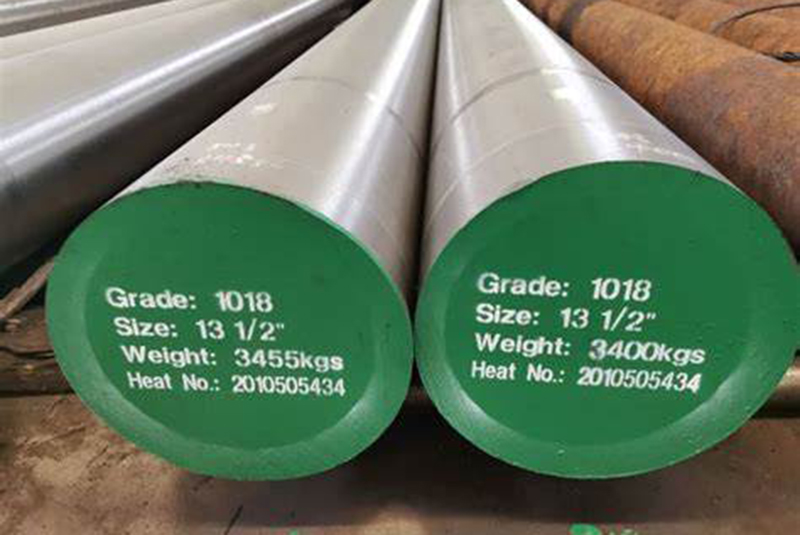
Properties and Characteristics
Now that you know the ingredients, let’s explore the resulting properties:
| Tài sản | Description |
|---|---|
| Sức mạnh | 4130 boasts a good balance of tensile strength, yield strength, and fatigue strength. It can withstand significant loads without breaking or deforming excessively. |
| Sự bền bỉ | This steel exhibits good resistance to fracture, meaning it can absorb impact energy without shattering. Think of it as being able to take a beating without falling apart. |
| Khả năng hàn | Unlike some high-strength steels, 4130 can be welded relatively easily. This makes it a popular choice for applications requiring complex fabrication. |
| Khả năng gia công | In its annealed state (softened by heat treatment), 4130 can be machined efficiently. This allows for precise shaping and creation of intricate components. |
| Khả năng gia công | While not exceptionally formable, 4130 can be cold-worked to a limited extent, offering some flexibility in shaping. |
| Heat Treatability | Through heat treatment processes like quenching and tempering, 4130’s strength and toughness can be tailored to specific needs. |
| Khả năng chống ăn mòn | While not stainless steel, 4130 offers moderate corrosion resistance thanks to the chromium content. It can be further enhanced with coatings or paint for harsher environments. |
The interplay of these properties makes 4130 a highly adaptable material for diverse applications.
Ứng dụng của Thép đặc biệt 4130 - Thép hợp kim
4130’s versatility shines across numerous industries. Here are some prime examples:
| Ngành công nghiệp | Ứng dụng |
|---|---|
| Không gian | Aircraft frames, landing gear components, engine mounts |
| Ô tô | Roll cages, high-performance suspension components, drivetrain parts |
| Dầu khí | Drill pipes, wellheads, pressure vessels |
| Xây dựng | Cranes, booms, scaffolding |
| Quân sự | Armor plating, weapon components, vehicle frames |
| Xe đạp | Frames for high-performance bicycles |
| Firearms | Barrels, receivers (depending on specific regulations) |
| General Fabrication | Shafts, gears, fasteners, various industrial equipment |
The reasons for 4130’s popularity in these applications are clear: its strength, weldability, and ability to be heat-treated for specific requirements.
Specifications, Sizes, and Grades
Choosing the right 4130 for your project requires understanding its specifications, available sizes, and different grades. Here’s a breakdown to guide you:
Specifications:
Several governing bodies establish standards for 4130, ensuring consistent quality and performance. Some key specifications include:
- ASTM A29 – Covers hot-rolled and cold-finished wrought steels.
- ASTM A4139 – Specifies seamless and welded tubular products made from 4130 steel.
- AMS (Aerospace Material Specifications) – Defines specific requirements for aerospace applications.
Understanding these specifications helps you select 4130 that meets the necessary mechanical properties and chemical composition for your application.
Sizes:
4130 is available in a wide range of shapes and sizes, catering to diverse needs. Here are some common examples:
- Plates: Varying in thickness from a fraction of an inch to several inches, used for structural components and machinery bases.
- Bars: Available in round, square, rectangular, and hexagonal shapes, used for shafts, axles, and various machined parts.
- Sheets: Thinner than plates, used for applications like panels, enclosures, and formed parts.
- Tubes: Seamless or welded tubes come in various diameters and wall thicknesses, ideal for pipelines, pressure vessels, and structural supports.
The size selection depends on the required strength, weight constraints, and the final shape of the component.
Grades:
There are several grades of 4130 available, each with slightly different properties achieved through variations in processing and alloying elements. Here’s a glimpse into some common grades:
- 4130 Chromoly (Chro-Moly): The standard grade, offering a good balance of strength, toughness, and workability.
- 4130 Modified: Variations may contain additional elements like vanadium or nickel for enhanced properties like fatigue strength or hardenability.
- 4130NQ: A quenched and tempered grade with improved strength and wear resistance.
Consulting with a material supplier is crucial to determine the most suitable grade of 4130 for your specific application’s requirements.
Comparison with Other Steels:
While 4130 excels in many areas, it’s always valuable to consider alternatives. Here’s a quick comparison:
- 4140 Chromoly: Similar to 4130 but with slightly higher carbon content, offering greater strength but potentially reduced weldability.
- 1026 Steel: A common low-carbon steel, less strong than 4130 but more affordable and easier to machine and weld.
- 4340 Chromoly: Offers higher strength and hardenability compared to 4130, but with reduced weldability and machinability.
The choice between these steels depends on the balance between strength, cost, fabrication requirements, and the application’s specific needs.
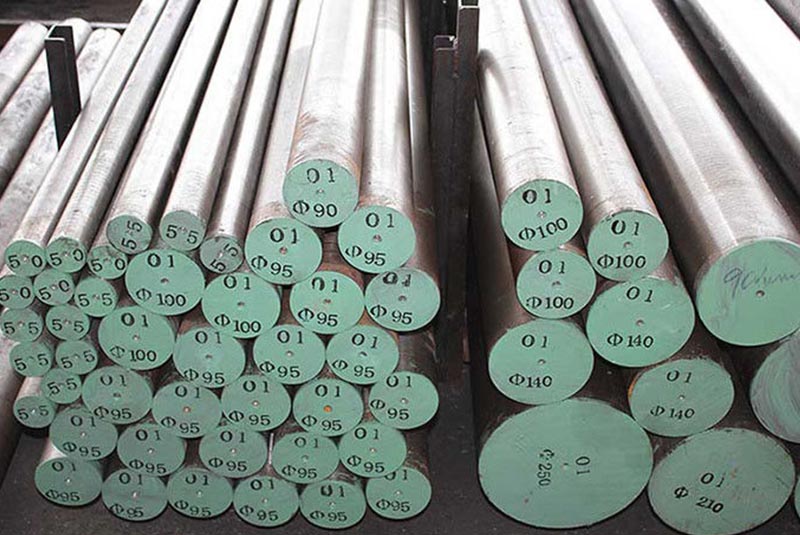
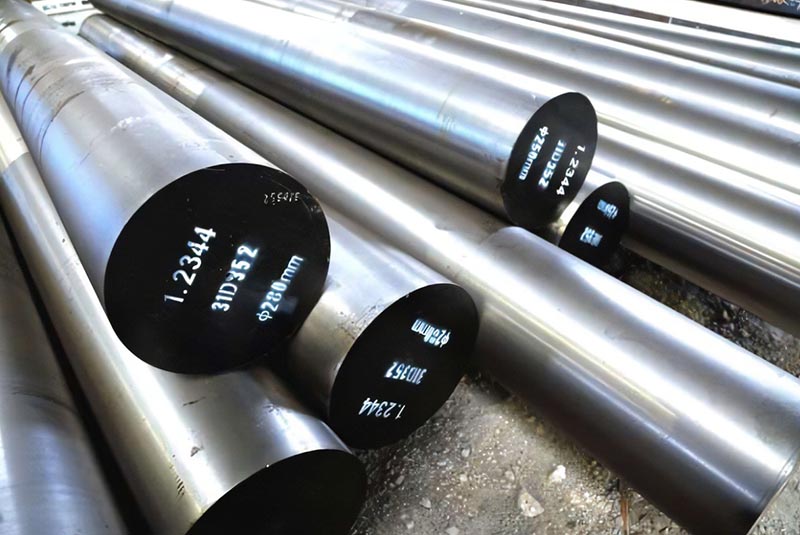
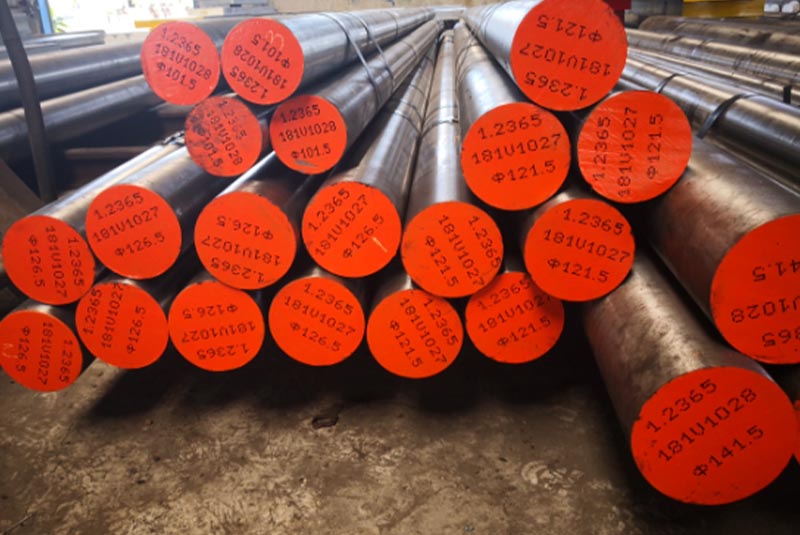
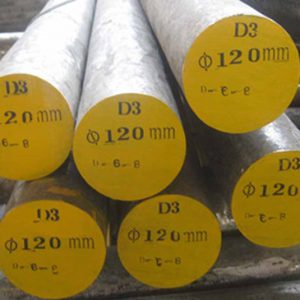
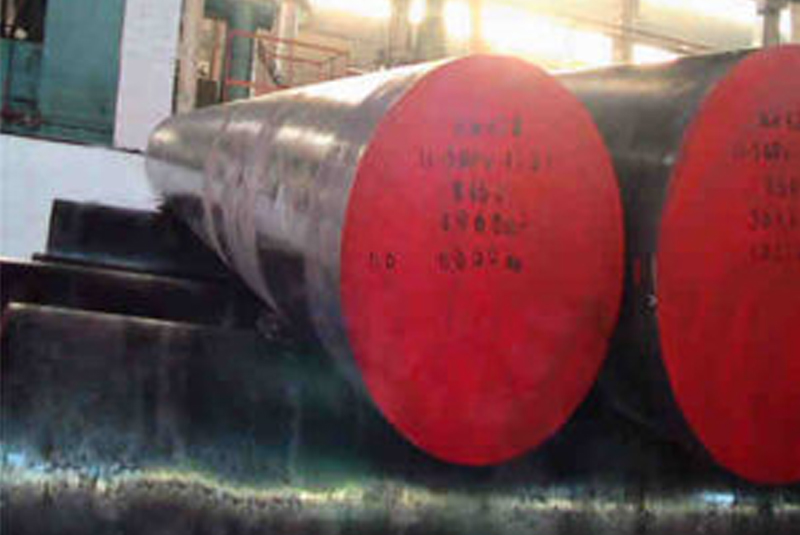
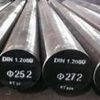
Nhà cung cấp và Giá cả
Obtaining high-quality 4130 requires reliable suppliers. Here are some factors to consider:
- Reputation: Look for established suppliers with a proven track record of providing consistent quality materials.
- Material Certifications: Ensure the supplier provides certifications that meet the required specifications.
- Inventory: Choose a supplier with a diverse inventory to meet your size and grade requirements.
- Value-Added Services: Consider suppliers who offer processing services like cutting, bending, or heat treatment.
Pricing for 4130 can vary depending on the specific grade, size, quantity, and market conditions. Generally, expect to pay more for larger sizes, higher grades, and smaller quantities.
Here’s a tip: Obtaining quotes from multiple suppliers helps you compare pricing and find the best value for your project.
the Advantages and Limitations of 4130
Every material has its strengths and weaknesses. Let’s explore the pros and cons of 4130:
Pros:
- Excellent Strength-to-Weight Ratio: Offers good strength without adding excessive weight, making it ideal for weight-sensitive applications.
- Good Weldability: Can be welded relatively easily compared to some high-strength steels.
- Machinability: Can be machined efficiently in its annealed state.
- Heat Treatability: Properties can be tailored through heat treatment for specific needs.
- Versatility: Applicable across diverse industries due to its well-rounded properties.
Cons:
- Not Stainless: Offers moderate corrosion resistance, requiring additional protection in harsh environments (e.g., coatings or paint).
- Limited Formability: Not as easy to bend or shape compared to some other steels.
- Cost: Can be more expensive than some lower-strength steels.
The key takeaway is to understand your project’s requirements and weigh the pros and cons of 4130 against other options.
Applications in Detail
Taking a deeper dive into specific applications showcases 4130’s versatility:
- Aerospace: In the high-flying world of aerospace, 4130’s strength-to-weight ratio and weldability make it ideal for aircraft frames, landing gear components, and engine mounts. Its ability to be heat-treated for specific strength requirements ensures it can handle the demanding stresses of flight.
- Automotive: From high-performance suspension components to roll cages in race cars, 4130’s strength and ability to withstand impact make it a popular choice for enhancing vehicle safety and performance. It can also be found in drivetrain parts that need to handle significant torque and power.
- Oil & Gas: The unforgiving environment of oil and gas exploration demands reliable materials. 4130’s strength and weldability make it suitable for drill pipes that must endure the pressure and stress of drilling deep underground. Wellheads and pressure vessels also benefit from 4130’s ability to contain high-pressure fluids.
These are just a few examples of how 4130’s properties translate into real-world applications across various industries.
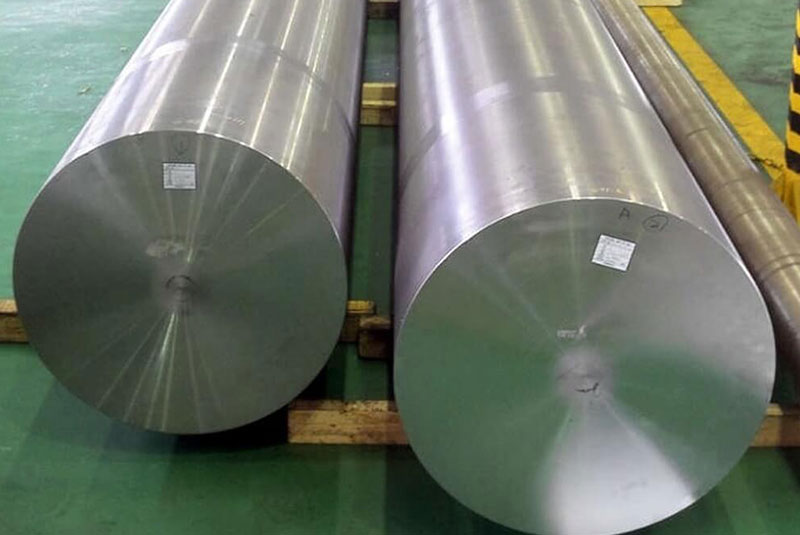
Câu hỏi thường gặp
Here are some common questions regarding 4130 alloy steel, answered in a clear and concise format:
| Câu hỏi | Trả lời |
|---|---|
| What is the difference between 4130 and mild steel? | Mild steel has a lower carbon content, making it weaker but more formable and weldable. 4130 offers superior strength but with slightly reduced weldability and formability. |
| Can 4130 be used for firearms? | Depending on regulations, some components like barrels and receivers can be made from 4130 in specific grades. It’s crucial to consult with a qualified gunsmith and adhere to local laws. |
| How does 4130 compare to aluminum? | Aluminum offers a higher strength-to-weight ratio but with lower overall strength. It’s also generally more expensive than 4130. The choice depends on the specific needs of the application, prioritizing weight savings or overall strength. |
| How can I cut 4130 steel? | Depending on the thickness and desired precision, various cutting methods can be used, including sawing, abrasive cutting discs, or waterjet cutting. |
| Is 4130 steel magnetic? | Yes, 4130 is a ferrous metal and exhibits magnetic properties. |
By understanding these FAQs, you can gain a more comprehensive understanding of 4130’s capabilities and limitations.
Kết luận
4130 alloy steel has earned its reputation as a versatile and dependable material across numerous industries. Its well-balanced combination of strength, toughness, weldability, and heat treatability makes it a go-to choice for applications demanding both performance and practicality. From soaring through the skies in aircraft to enduring the harsh realities of oil and gas exploration, 4130 proves its mettle as a true workhorse material.

